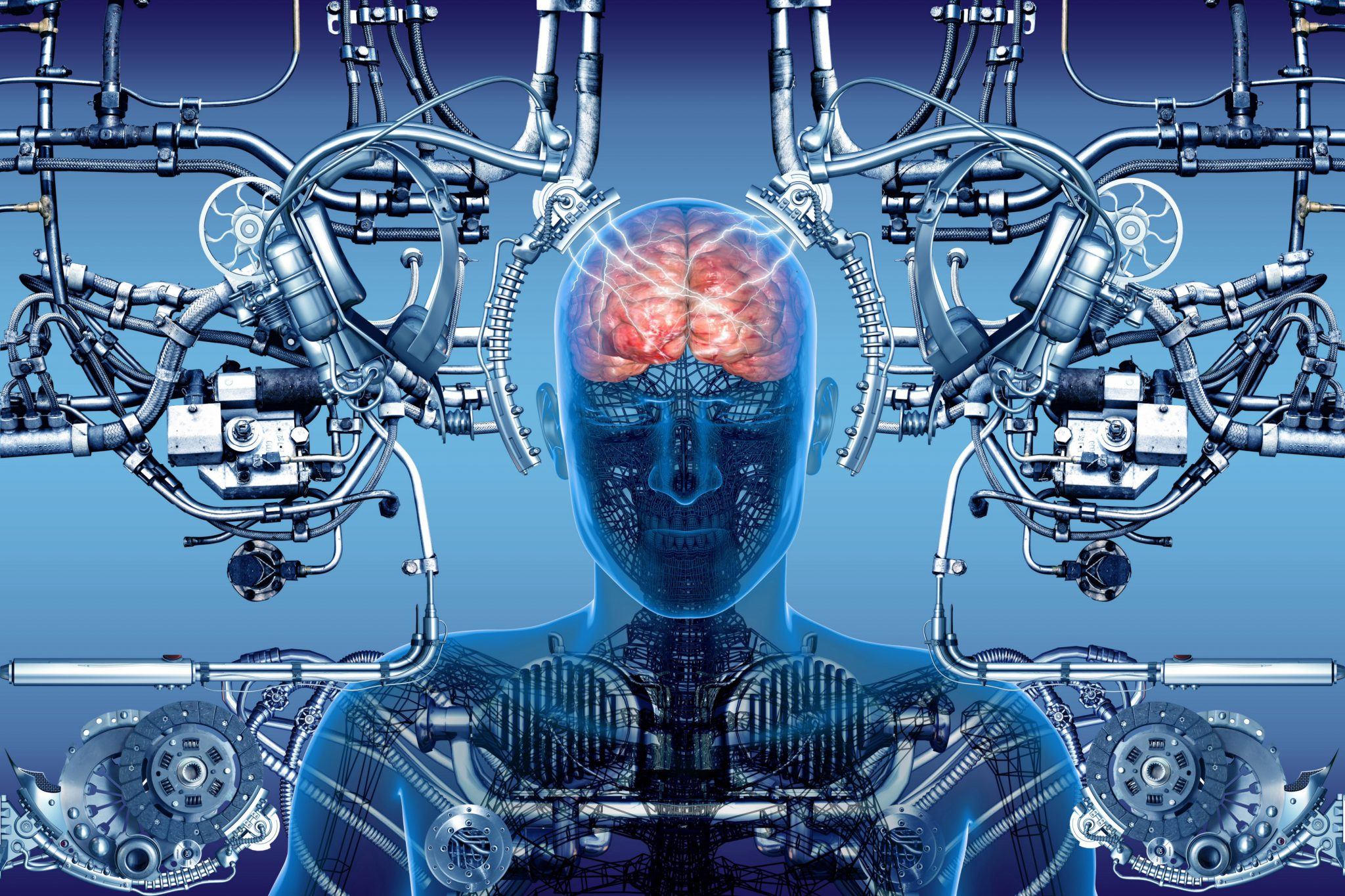Brain-computer interfaces (BCIs) represent a groundbreaking advancement in neurotechnology, aiming to bridge the gap between human cognition and digital devices. With companies like Neuralink pioneering the development of brain chips, this mind control technology is gaining traction for its potential to restore mobility and communication among individuals with disabilities. However, as we embrace these innovations, we must also confront the ethical implications of BCIs, particularly in terms of personal autonomy and the risk of exploitation. The alarming BID effects, where technology might inadvertently manipulate behavior, raise significant concerns about privacy and consent. As we stand on the threshold of this new era, the discourse surrounding neuroethics becomes crucial in navigating the dual potential of BCIs – to heal and to harm.
As we delve into the realm of cerebral interfaces, often referred to as neuroprosthetics or direct neural interfaces, it becomes evident that these technologies hold transformative opportunities for human enhancement. By utilizing sophisticated brain chips and advanced mind control systems, researchers aim to develop solutions that could enable individuals to interact with machines using their thoughts. The discussion inevitably leads to the examination of the ethical dimensions associated with such innovations, highlighting the need for a careful evaluation of their societal impact. Furthermore, the possibility of unintended behavioral modifications—termed as BID effects—complicates our understanding of consent and self-determination in relation to advanced neurotechnologies. It is in this light that the broader conversation about neuroethics becomes increasingly essential as we navigate the complexities of harnessing brain-computer interfaces.
Exploring Brain-Computer Interfaces: A New Frontier
Brain-computer interfaces (BCIs) represent a groundbreaking leap in neurotechnology, blending the intricacies of the human brain with direct interaction with computers. The recent advancements, especially those led by companies like Neuralink, have shown promising results in restoring mobility and communication for individuals affected by neurological disorders. These devices offer the potential not only to control prosthetics but also to provide new avenues for expression, translating thoughts into actions seamlessly. As researchers delve deeper into BCIs, the scope of their applications continues to broaden, hinting at a future where the limitations of physical disabilities could be fundamentally transformed.
However, as we enter this new frontier of brain-computer interfaces, it becomes crucial to navigate the ethical implications associated with their deployment. The integration of technology into the human brain raises significant questions regarding consent, mental privacy, and the potential for misuse. Are we prepared to address the potential for these technologies to be exploited by state and private actors seeking to manipulate behavior? The lessons of history, particularly those stemming from programs like MKUltra, remind us that the quest for control over the mind can lead to devastating consequences, emphasizing the need for rigorous ethical standards and oversight in BCI research and application.
The Ethical Implications of Neuralink and BCIs
As companies like Neuralink advance the development of brain chips, the ethical implications become a primary concern. The promise of restoring lost functions to those with severe disabilities is juxtaposed with the risks of creating systems that could potentially infringe on an individual’s autonomy or privacy. Discussions surrounding neuroethics increasingly point out the ambiguity of consent once direct interfaces with the brain are established. How do we ensure that individuals truly understand what it means to integrate technology into their neural systems, especially when the technology itself is rapidly evolving?
Moreover, ethical concerns are heightened by the specter of past government programs that used mind control techniques, reflecting fears that modern technologies could permit similar abuses. As noted by Lukas Meier, the potential for BCIs to not only read but influence thoughts and behaviors presents both incredible opportunities and dire responsibilities. We must approach the development and deployment of these technologies with caution, ensuring safeguards are in place to honor personal agency and prevent the repeat of history’s darker chapters.
In striking a balance between innovation and ethics, it is critical for stakeholders to engage in transparent dialogues regarding the social, psychological, and legal ramifications of BCIs. As society stands on the brink of a potential mind-control revolution, prioritizing informed consent and ethical use will prove crucial to harnessing the positive capabilities of brain-computer interfaces while guarding against their darker possibilities.
Potential Applications and Misuses of Mind Control Technology
The applications of mind control technology, particularly through brain-computer interfaces, present exciting possibilities for enhancing human capabilities. From establishing communication pathways for individuals with paralysis to potentially revolutionizing mental health treatment, the outlook is promising. However, the same characteristics that can be employed for noble causes may easily lend themselves to misuse. As with any powerful technology, the dual-use nature raises profound concerns about controlling who has access to these technologies and for what purposes.
For instance, while the ability to decode thoughts can lead to life-improving innovations, it could also be weaponized, infringing upon individual liberties and privacy rights. The implications of neurotechnology in educational settings, such as tracking a student’s brainwaves to monitor focus, evoke immediate questions about consent and the potential for manipulation. If such devices exploit cognitive enhances or controls, they undermine the fundamental principles of freedom and personal agency. To fully realize the benefits of these advancements, we must build a framework that respects individual rights while fostering ethical research and application.
Historical Context: Lessons from MKUltra
The unsettling legacy of the CIA’s MKUltra program serves as a harrowing reminder of the possible ramifications of intersection between brain science and government oversight. This Cold War-era initiative, aimed at unlocking mind control techniques through controversial experiments, has left an indelible mark on discussions regarding the ethical boundaries of neurotechnology. These historical precedents reveal the drastic consequences of disregarding moral responsibility in pursuit of military or political advantage, making it essential for modern BCI research to learn from past missteps.
As brain-computer interfaces gain traction, it becomes increasingly relevant to consider how their capabilities mirror those of the old mind control experiments, albeit with far more advanced techniques and potential. Today, the responsibility lies with neuros scientists, ethicists, and eventually the public to ensure governance structures are defined to prevent the repetition of history. By promoting a culture of ethical reflection and debate surrounding the implications of BCIs, society can work towards a future that honors the dignity and autonomy of individuals while exploring the transformative potential of brain technology.
The Role of Neuroethics in Advancing BCI Technology
As brain-computer interfaces (BCIs) advance, the emerging field of neuroethics will play a pivotal role in guiding their responsible development and implementation. By examining the moral dimensions of neuroscience and technology, neuroethics seeks to address the complexities tied to issues such as mental privacy, consent, and autonomy in the context of BCIs. The rapid evolution of these technologies necessitates proactive engagement in ethical discourse to anticipate and mitigate potential risks, ensuring they enhance rather than undermine personal well-being.
Moreover, as researchers and companies explore a myriad of applications for BCIs—from assisting people with disabilities to enhancing cognitive functions for the general population—neuroethics advocates for multidisciplinary collaboration. By involving ethicists, psychologists, technologists, and the public in open discussions, we can foster an environment where innovation is guided by shared values of respect and responsibility. This holistic approach promises to inoculate society against the potential misuse of technologies, ensuring that advancements in brain-computer interfaces align with the greater good.
Market Potential of Brain-Computer Interfaces
The projected $400 billion market for brain-computer interfaces (BCIs) in the U.S. alone underscores the significant interest and investment in this burgeoning field. The potential applications range from medical treatments to enhancing everyday life activities, reflecting a broad spectrum of possibilities that BCIs could unlock. Companies like Neuralink are at the forefront of this innovation, demonstrating efficacy in restoring mobility and improving quality of life for individuals with severe impairments. As global interest grows, the potential for BCIs to become commonplace in various industries becomes increasingly feasible.
However, while the economic prospects are promising, they must be accompanied by vigilant consideration of the ethical implications tied to commercialization. The rush toward monetizing BCI technology presents the risk of prioritizing profit over public safety and ethical standards. The question arises: will these technologies inadvertently deepen social inequalities by being accessible primarily to those who can afford them, leaving vulnerable populations behind? Thus, addressing the market potential of BCIs goes hand-in-hand with fostering inclusive discussions around equitable access and ethical considerations, ensuring that advancements benefit society as a whole.
Protecting Consent and Autonomy with BCIs
As brain-computer interfaces (BCIs) become increasingly integrated into therapeutic strategies, ensuring informed consent and preserving individual autonomy are paramount. Unlike traditional medical treatments, BCIs interact directly with the brain, blurring the lines of agency. Individuals must clearly understand how these technologies work, their implications, and the potential risks involved. Establishing transparent practices around consent fosters trust between patients and practitioners, ensuring that decisions regarding BCI use are informed and voluntary.
Furthermore, there may be unforeseen consequences of BCI deployment that could compromise personal autonomy. For instance, the potential for devices to manipulate behavior inadvertently poses a threat to free will, as evidenced in cases where deep brain stimulation has led to unexpected outcomes in patients. To navigate these complexities, robust regulatory frameworks must be established to protect individuals from exploitation and maintain their rights over their cognitive functions. Ultimately, safeguarding consent and autonomy in the realm of BCIs is essential to ensuring that technological advancement does not come at the cost of personal freedoms.
Future Directions for BCI Research and Development
Looking forward, the field of brain-computer interfaces is poised for remarkable advancements, with researchers constantly exploring new technologies that could reshape our interactions not only with machines but also with one another. As findings accumulate, the integration of artificial intelligence and machine learning presents exciting opportunities for optimizing BCI performance, improving precision in translating neural signals into actions. Future research must focus on effectively harnessing these advancements to enhance the efficacy of BCIs while addressing the associated ethical dilemmas.
Additionally, fostering interdisciplinary collaborations among neuroscientists, ethicists, engineers, and policymakers is essential to navigate the ever-evolving landscape of BCI technology. Engaging diverse perspectives ensures that research aligns with societal values, promoting innovations that prioritize human welfare over profit. By investing in thoughtful research and ethical deliberation, we can harness the transformative potential of brain-computer interfaces while upholding the principles of consent, autonomy, and respect for human dignity.
Balancing Innovation with Ethical Considerations in Neurotechnology
As brain-computer interfaces (BCIs) continue to gain traction within both the medical and technological realms, the quest to balance innovation with rigorous ethical considerations has never been more vital. With cutting-edge developments from leaders in neurotechnology like Neuralink, there is a profound responsibility to ensure these advancements are coupled with ethical transparency and accountability. Implementing effective governance mechanisms will be crucial to safeguard against potential human rights abuses while fostering an environment conducive to innovation.
Moreover, as the stakes increase with the advent of mind control technology, fostering an ethical framework becomes paramount. The potential misalignment between technological advancements and ethical considerations may lead to societal disparities if left unaddressed. It is essential to create platforms for open dialogue where diverse voices can contribute to the conversation about the future of neurotechnology. Balancing the promise of BCIs with ethical foresight lays the groundwork for responsible innovation that respects individual rights and promotes social good.
Frequently Asked Questions
What are brain-computer interfaces (BCIs) and how do they work?
Brain-computer interfaces (BCIs) are innovative technologies that establish a direct communication pathway between the brain and external devices. By interpreting brain signals, BCIs can enable individuals to control computers, prosthetic limbs, or other devices using their thoughts alone. This technology shows promise for aiding individuals with disabilities and is a growing field due to its potential applications and market value.
What are the ethical implications of BCIs like the Neuralink brain chip?
The ethical implications of brain-computer interfaces, such as the Neuralink brain chip, are significant. Concerns include issues of mental privacy, the potential for mind control technology to be misused, and the effects of altering human behavior. As BCIs integrate deeper into society, discussions around consent and the rights of individuals are becoming increasingly crucial.
Can mind control technology derived from BCIs lead to manipulation?
While current brain-computer interfaces are primarily designed for therapeutic use, concerns arise about the potential for mind control technology to manipulate individuals. As advancements continue, there are fears that governments or private entities may exploit BCIs to influence behavior or extract information without consent, echoing historical instances of psychological manipulation.
What are the potential BID effects associated with brain-computer interfaces?
Brain-computer interfaces may lead to various bidirectional interaction effects (BID effects), where the device not only receives but also sends information back to the brain. Potential effects could include mood changes or altered perception, as seen in some patients undergoing deep brain stimulation for conditions like Parkinson’s disease. Understanding these effects is vital as BCIs evolve.
How does neuroethics apply to the development of brain-computer interfaces?
Neuroethics is essential in guiding the responsible development and use of brain-computer interfaces. As BCIs become more mainstream, neuroethics explores the implications of these technologies on free will, mental autonomy, and individual rights. Ongoing discussions in this field emphasize the need to safeguard against misuse and ensure ethical standards in BCI applications.
What advancements can we expect from brain-computer interfaces in the near future?
The future of brain-computer interfaces holds promising advancements, including improved functionality for controlling devices, enhanced communication methods for individuals with disabilities, and even potential cognitive enhancements. As research progresses, BCIs may become more integrated into everyday life, pushing the boundaries of accessibility and human-computer interaction.
How do brain-computer interfaces compare to historical mind control experiments?
Brain-computer interfaces, while distinct from historical mind control experiments such as MKUltra, raise comparable ethical concerns regarding consent and autonomy. Both share a focus on the brain’s influence on behavior, which invites caution in how BCIs might be implemented. Historically, mind control efforts showed the dangers of psychological manipulation, underscoring the need for ethical oversight in BCI development.
| Key Points | Details |
|---|---|
| Introduction of BCIs | Noland Arbaugh became the first recipient of a Neuralink brain chip implanted on Jan. 28, 2024. |
| Applications of BCIs | BCIs can help paralyzed individuals control devices, prosthetics, or translate thoughts into speech. |
| Market Potential | Estimated market for BCIs is around $400 billion in the U.S. due to numerous cases of disabilities. |
| Warnings from History | A new paper draws parallels between BCI development and historical mind control experiments during the Cold War. |
| Potential Misuse | Concerns exist regarding the use of BCIs for mind control or psychological manipulation by state or private actors. |
| Effects of BCIs on Behavior | Deep brain stimulation may induce behavioral changes, such as manic symptoms in some patients. |
| Continued Development | Despite concerns, there is support for BCI development to counter global adversaries and ensure technological leadership. |
Summary
Brain-computer interfaces (BCIs) represent a remarkable advancement in neurotechnology, offering life-changing potential for individuals with disabilities. However, this promising technology comes with significant moral and ethical concerns, reminiscent of dark historical chapters involving psychological manipulation. As BCIs continue to evolve, the balance between innovation and the protection of individual autonomy must be carefully managed to avoid a repeat of past mistakes. Continuous dialogue and vigilance are essential to ensure that these groundbreaking devices enhance human life rather than threaten it.




